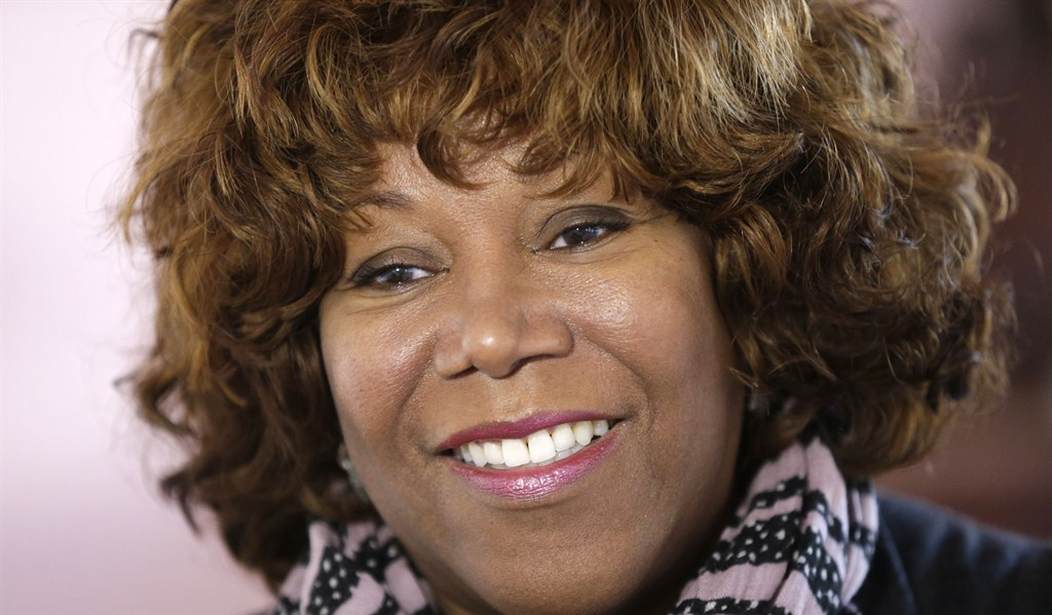Ruby Bridges made history as the first African-American child to integrate an all-white elementary school in the American South. Her story has been celebrated for decades. But at least one Florida school might remove a movie made about her due to concerns over violating the Stop WOKE Act.
Florida has become one of several ground zeroes in the fight over education. The battle centers on the material being presented to young children in K-12 classrooms.
Concerns over teaching ideas inspired by Critical Race Theory and the infusion of far-leftist gender ideology have abounded, with parents and conservative politicians calling for an end to the attempt to indoctrinate children. In response, progressives have taken a disjointed approach, both denying that these topics are being taught while also defending the teachings.
Much of the issue has to do with how America’s troubled history when it comes to racial matters is being presented to students. Progressives have accused conservatives of trying to water down the nation’s treatment of black Americans and other racial minorities. They insist that these lessons should be included in the curriculum.
The debate intensified after Florida passed the Stop WOKE Act, which is ostensibly designed to prevent teachers from teaching in a way that encourages students to judge one another on skin color. It also appears intended to ensure that teachers are not teaching these topics in a way designed to make white students feel discomfort or suggest that they are somehow responsible for America’s racial woes.
Some watching the situation unfold saw how Florida’s legislation might result in overreaction regarding certain school materials. While most would likely agree in principle with the law, it was not difficult to see how some might use it to go overboard. This is now being seen in Pinellas County, where one school has removed a Disney movie about Ruby Bridges.
The controversial removal of the Disney movie “Ruby Bridges” from Pinellas County Black History Month lessons has caused an uproar among some parents and community members, according to the Tampa Bay Times. The movie, which tells the story of the first African-American child to integrate an all-white school in New Orleans, had been used as a teaching tool for years without incident. However, a North Shore Elementary parent recently raised concerns about the appropriateness of the film for second-graders.
In a formal challenge dated March 6, Emily Conklin cited the use of racial slurs and scenes of white people threatening Ruby as she entered a school as potentially harmful to young students. Pinellas school officials responded by removing the movie from use by all students at the St. Petersburg school until a review committee can assess it.
That’s right, folks. The school removed the movie for review because one parent complained.
This decision has drawn criticism from the Concerned Organization for Quality Education for Black Students, a countywide group representing Black children’s interests in Pinellas public schools. In an open letter to the community, the organization’s president, Ric Davis, questioned why one parent’s complaint resulted in actions affecting all school families.
This is not the first time someone has made the story of Ruby Bridges an issue. In Tennessee, a group tried to have a book written about her removed.
Ruby Bridges later became a civil rights activist. Born in Mississippi in 1954, she and her family moved to New Orleans when she was four years old. In 1960, she was just six years old when she was selected to attend an all-white school, William Frantz Elementary School, as part of the court-ordered integration of the New Orleans public school system.
Due to the violent protests from white parents who didn’t want their children to attend school with a black child, Bridges had to be escorted to school by federal marshals. Despite the hate and violence directed at her, she attended school every day, and her bravery paved the way for other African-American students to attend formerly all-white schools in the South.
Bridges’ story has been the subject of books, documentaries, and even a painting by the renowned artist Norman Rockwell. She went on to graduate from a desegregated high school and later worked as a travel agent before founding the Ruby Bridges Foundation, which promotes “the values of tolerance, respect, and appreciation of all differences.” Her legacy continues to inspire generations of activists who fight for social justice and equal rights for all people.
The ongoing debate about censorship in education has left some educators second-guessing themselves about what materials to use in classrooms. Lawmakers have emphasized the importance of presenting facts honestly in lessons about race, but they also want to avoid creating discomfort for students.
Davis argued that the scenes in “Ruby Bridges” are historically accurate and said the truth does not change just because someone doesn’t like it.
“At the highest level of decision-making in the district, they have to have more sensitivity to the diversity of the community they serve, and not overreact because one white person objected to something,” he said, and was quick to add that they should not do so for one black parent’s objection either.
“At the end of the day, we’re one total community and we have to figure out how we work together to make decisions that serve everyone,” he continued.
The craziness of the far left insisting that educators label children as “oppressors” and “oppressed” due to their skin color has created a fiery backlash. This is warranted, considering that these teachings go against what Americans profess to believe about judging folks based on melanin content.
However, this does not mean that every lesson or piece of content that discusses America’s history with race is “woke” or an example of Critical Race Theory. Approaching it as such will only undermine what we are trying to do. Most people, regardless of affiliation, agree that schools should teach the good, the bad, and the ugly about American history. We can do this without buying into the far-left’s agenda. Showing the Ruby Bridges movie is not Critical Race Theory – it is teaching history, which is what we all should want.
The opinions expressed by contributors are their own and do not necessarily represent the views of RedState.com.












